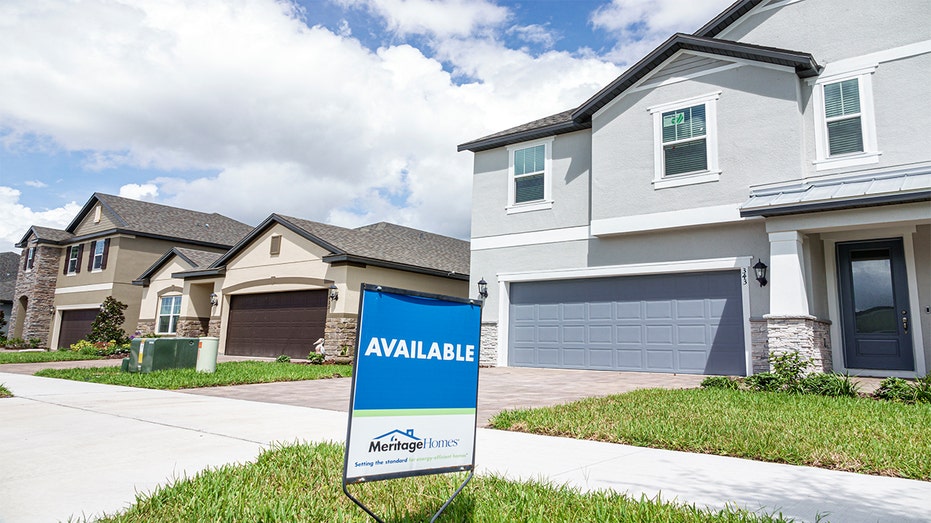Mortgage rates resume their climb
The 30-year fixed-rate mortgage averaged 6.92%, the highest level since 2002.
Pamela Liebman: ‘Scary’ mortgage rates forcing homebuyers to ‘walk away’ from contracts
The Corcoran Group president and CEO Pamela Liebman argues homebuyers wouldn’t ‘typically’ have the ability to back out of a contract when the market’s ‘on fire.’
Average long-term U.S. mortgage rates reached their highest level in more than two decades this week and are likely to climb further as the Federal Reserve has all but promised more rate increases in its battle to tamp down persistent inflation.
The 30-year fixed-rate mortgage averaged 6.92% with an average 0.8 point as of Thursday, up from last week when it averaged 6.66%. A year ago at this time, the 30-year FRM averaged 3.05%.
The 15-year fixed-rate mortgage averaged 6.09% with an average 1.1 point, up from last week when it averaged 5.90%. A year ago, the rate averaged 2.30%.
The 5-year Treasury-indexed hybrid adjustable-rate mortgage (ARM) averaged 5.81% with an average 0.2 point, up from last week when it averaged 5.36%. A year ago at this time, the 5-year ARM averaged 2.55%.

A home for sale in Florida. (Stephen M. Dowell/Orlando Sentinel/Tribune News Service via Getty Images / Getty Images)
FIRST-TIME HOMEBUYERS ARE BACK BUT PAYING THROUGH THE NOSE
Many prospective buyers have been pushed out of the market as average mortgage rates have more than doubled this year.
"Rates resumed their record-setting climb this week, with the 30-year fixed-rate mortgage reaching its highest level since April of 2002," said Sam Khater, Freddie Mac’s Chief Economist. "We continue to see a tale of two economies in the data: strong job and wage growth are keeping consumers’ balance sheets positive, while lingering inflation, recession fears and housing affordability are driving housing demand down precipitously. The next several months will undoubtedly be important for the economy and the housing market."

In this April 2, 2020 file photo, roofers work on removing and placing new shingles in Warren, Mich. (AP Photo/Paul Sancya, File / AP Newsroom)
MORTGAGE ACTIVITY HITS 25-YEAR LOW AS RATES RISE
Another report from the government Thursday showed that consumer inflation remained much too high at 8.2%. Combined with the 8.5% inflation at the wholesale level reported on Wednesday, most economists expect another big increase when the Federal Reserve meets early in November.
The Fed’s aggressive action has tripped up a housing sector that — outside of the onset of the COVID-19 pandemic — has been hot for years. Existing home sales have declined for seven straight months as the rising cost to borrow money puts homes out of reach for more people.
Freddie Mac says that for a typical mortgage, borrowers who locked in at the higher end of the rate range during the past year would pay several hundred dollars more than borrowers who signed contracts at the lower end of the range.
Mortgage rates don’t necessarily mirror the Fed’s rate increases, but tend to track the yield on the 10-year Treasury note. That’s influenced by a variety of factors, including investors’ expectations for future inflation and global demand for U.S. Treasurys.
By raising borrowing rates, the Fed makes it costlier to take out a mortgage and an auto or business loan. Consumers and businesses then presumably borrow and spend less, cooling the economy and slowing inflation.
Despite a still-robust job market, the government estimates that the U.S. economy shrank at a 0.6% annual rate in the second quarter that ended in June.
| Ticker | Security | Last | Change | Change % |
|---|---|---|---|---|
| FMCC | FEDERAL HOME LOAN MORTGAGE CORP. | 7.34 | -0.04 | -0.54% |
CLICK HERE TO GET THE FOX BUSINESS APP
The Associated Press contributed to this report.




















